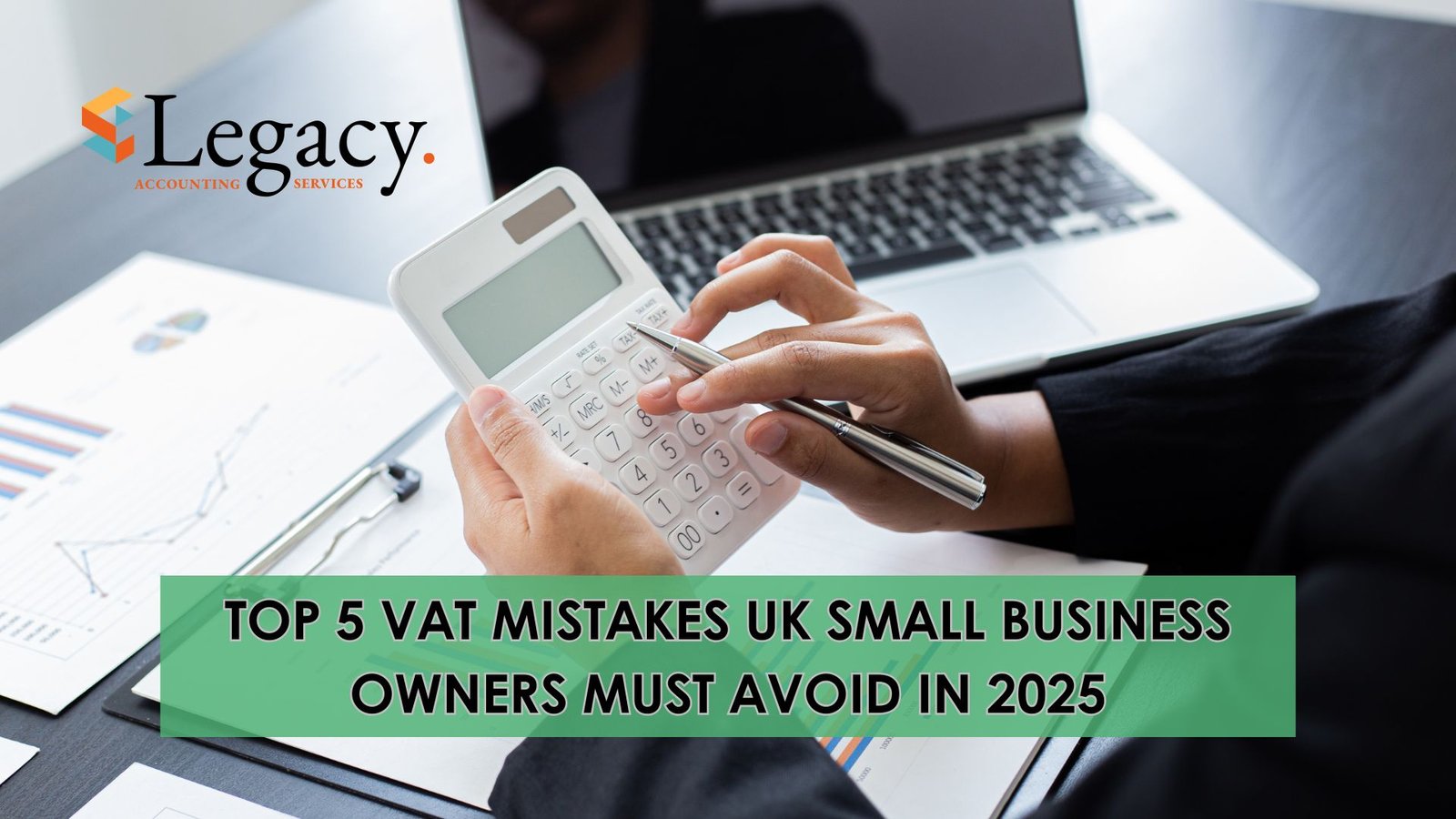Value Added Tax (VAT) compliance is a critical responsibility for small business owners, but it’s also an area where many unintentionally stumble. Navigating VAT regulations can be complex, especially with varying rules across jurisdictions, different VAT schemes, and frequent updates. Making VAT errors can result in financial penalties, cash flow issues, and time-consuming audits. Here are the top five VAT mistakes small business owners commonly make—and how to avoid them.
1. Registering for VAT Too Late (or Too Early)
One of the most common pitfalls is not registering for VAT at the right time. In many countries, businesses are required to register for VAT once their taxable turnover crosses a certain threshold. Failing to monitor your turnover and missing the registration deadline can lead to penalties and the need to pay VAT retrospectively.
On the other hand, registering too early, before it’s legally required or financially beneficial, can overcomplicate your accounting. You may need to charge VAT on your sales, making your products or services less competitive compared to non-VAT registered businesses targeting the same customers.
Tip: Keep a close eye on your turnover and set alerts or reminders as you approach the VAT threshold. Consult a tax advisor to determine the best time to register based on your business model.
2. Charging the Wrong VAT Rate
Different goods and services may be subject to different VAT rates—including standard, reduced, or even zero-rated. Applying the wrong rate to an invoice can cause incorrect VAT payments, unhappy customers, or HMRC penalties (UK) or related tax authority issues in other countries.
This mistake is especially common among businesses that sell a range of products or trade internationally, each with unique tax treatments.
Tip: Carefully research the VAT classification of each product or service you sell and stay updated on changes in VAT legislation. Use accounting software with built-in VAT rules to avoid human error.
3. Not Keeping Proper Records
VAT returns require detailed and accurate records of sales, purchases, input VAT, and output VAT. Inadequate record-keeping can make it difficult to file returns accurately or justify your claims during an audit.
Some business owners fail to keep digital copies of invoices or neglect to track VAT paid on business expenses, resulting in lost reclaim opportunities or compliance risk.
Tip: Implement a cloud accounting system that automates the categorisation of VAT transactions and securely stores all invoicing documentation. Regularly review your records to ensure correctness and completeness.
4. Missing VAT Deadlines
Late VAT return submissions or payments can lead to fines, interest charges, and damage to your business’s reputation. Many small business owners overlook VAT deadlines during busy sales periods or simply forget due dates, especially if they’re submitting returns manually or handling multiple obligations.
Tip: Set up calendar reminders and enable deadline notifications through your accounting software. If you frequently miss deadlines, consider working with an accountant to manage your VAT compliance.
5. Failing to Reclaim Input VAT Correctly
Businesses can reclaim VAT paid on goods and services purchased as part of their operations. However, errors occur when claims are made on non-business expenses, entertainment, or goods/services used both personally and commercially. Incorrectly reclaiming input VAT can lead to repayments and penalties.
Another common error is forgetting to reclaim VAT on legitimate deductible expenses due to lost receipts or incorrect data entry.
Tip: Understand which expenses qualify for VAT reclaims and keep clear, organised records of all receipts and purchase invoices. Consult with a professional to review reclaim practices and identify missed opportunities.
Final Thoughts
VAT compliance doesn’t need to be overwhelming, but it does require vigilance and a proactive approach. By understanding and avoiding these common VAT mistakes, small business owners can minimise risk, improve cash flow, and streamline tax reporting. If VAT still feels like a challenge, don’t hesitate to invest in professional help. The cost of expert guidance can be far less than the cost of fixing VAT errors down the line.


